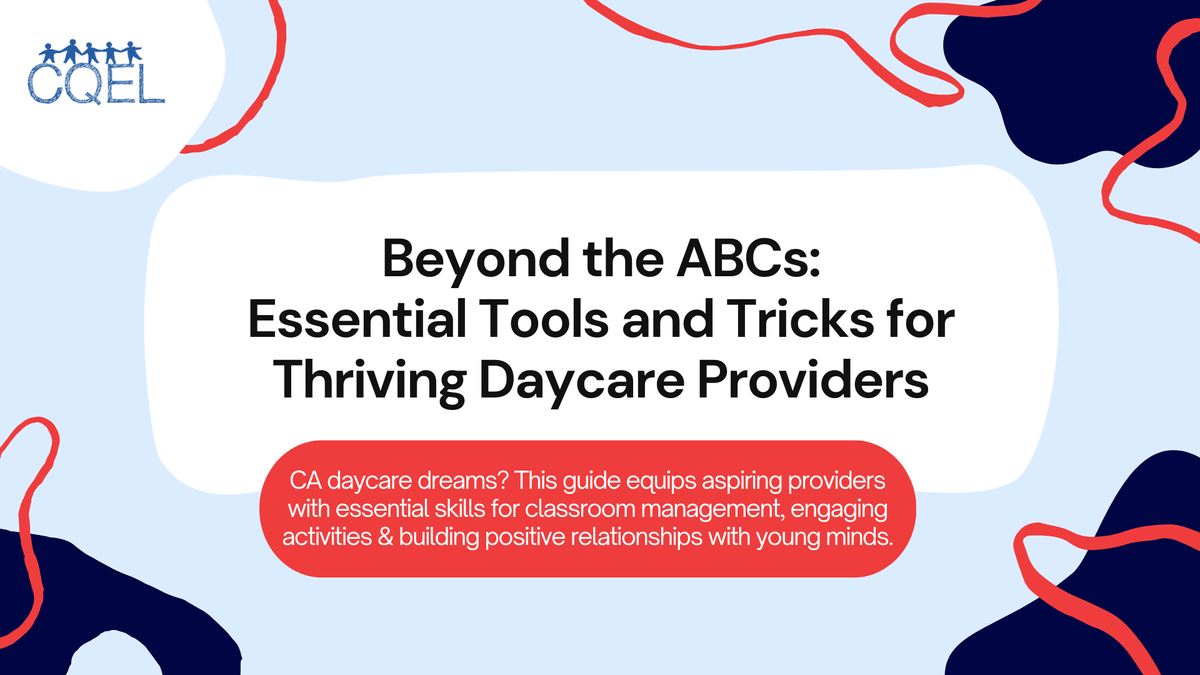Beyond the ABCs: Essential Tools and Tricks for Thriving Daycare Providers
CA daycare dreams? This guide equips aspiring providers with essential skills for classroom management, engaging activities & building positive relationships with young minds.

The world of early childhood education is a vibrant tapestry woven with laughter, exploration, and nurturing care. As an aspiring daycare provider in California, your toolbox needs to be stocked with more than just crayons and finger paint. Effective classroom management, engaging activities, and fostering positive relationships with children are all essential skills. Let's delve into some practical tips and tricks to empower you on your journey as a daycare provider.
The Power of Positive Reinforcement:
Young children thrive on positive reinforcement. Instead of focusing on reprimands, acknowledge desired behaviors with praise and encouragement. Utilize specific language to highlight positive actions, such as "Thank you for sharing your blocks with Sarah!" or "I love the way you cleaned up your toys so neatly!" Positive reinforcement fosters self-esteem, cooperation, and a sense of accomplishment in young learners.
Creating a Stimulating Learning Environment:
A well-organized and stimulating classroom environment is key to fostering exploration and learning. Divide your space into distinct areas that cater to various interests, such as a block building zone, a cozy reading nook, or an art and sensory exploration area. Rotate materials regularly to keep things fresh and spark a sense of discovery in the children. Remember, natural light, open space, and age-appropriate furniture all contribute to a nurturing learning environment.
The Art of Storytelling and Creative Exploration:
Storytelling is a powerful tool for sparking imagination, language development, and social-emotional learning. Incorporate a variety of stories into your daily routine, including traditional tales, interactive finger plays, and even puppet shows. Let storytelling ignite creativity by providing open-ended materials like cardboard boxes, fabric scraps, and recycled items that can be transformed into props for imaginative play.
The Importance of Routines and Transitions:
Providing structure and predictability is essential for young children. Establish clear routines for arrival, mealtimes, and nap times. Visual schedules with pictures or simple icons can help children understand the flow of the day and anticipate transitions. Use songs, timers, or short rhymes to signal transitions between activities, making them smoother and less disruptive.
Building Relationships: The Heart of Quality Care
Fostering positive relationships with each child is the cornerstone of quality daycare. Take time to get to know each child's unique personality, interests, and learning style. Actively listen to their stories, engage in their play, and create a safe space where they feel comfortable expressing themselves. Positive relationships with the adults in their daycare environment provide young children with a sense of security and promote healthy social-emotional development.
By incorporating these tips and tricks into your toolbox, you'll be well-equipped to create a nurturing and stimulating environment where young children can learn, explore, and thrive. The California Department of Education's website offers a wealth of resources on early childhood education, providing additional support and valuable insights for aspiring daycare providers.
